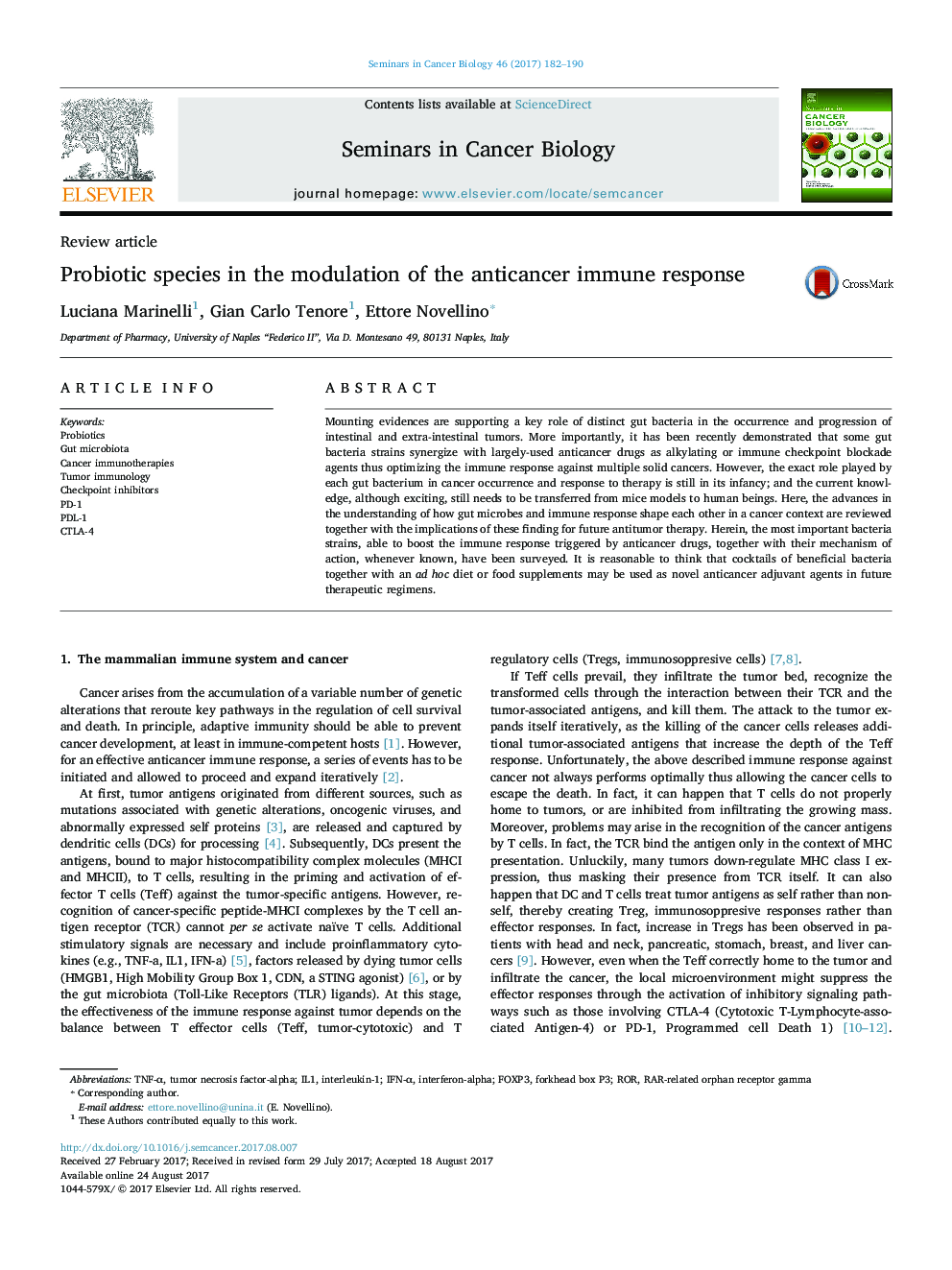| Article ID | Journal | Published Year | Pages | File Type |
|---|---|---|---|---|
| 6481751 | Seminars in Cancer Biology | 2017 | 9 Pages |
Mounting evidences are supporting a key role of distinct gut bacteria in the occurrence and progression of intestinal and extra-intestinal tumors. More importantly, it has been recently demonstrated that some gut bacteria strains synergize with largely-used anticancer drugs as alkylating or immune checkpoint blockade agents thus optimizing the immune response against multiple solid cancers. However, the exact role played by each gut bacterium in cancer occurrence and response to therapy is still in its infancy; and the current knowledge, although exciting, still needs to be transferred from mice models to human beings. Here, the advances in the understanding of how gut microbes and immune response shape each other in a cancer context are reviewed together with the implications of these finding for future antitumor therapy. Herein, the most important bacteria strains, able to boost the immune response triggered by anticancer drugs, together with their mechanism of action, whenever known, have been surveyed. It is reasonable to think that cocktails of beneficial bacteria together with an ad hoc diet or food supplements may be used as novel anticancer adjuvant agents in future therapeutic regimens.
